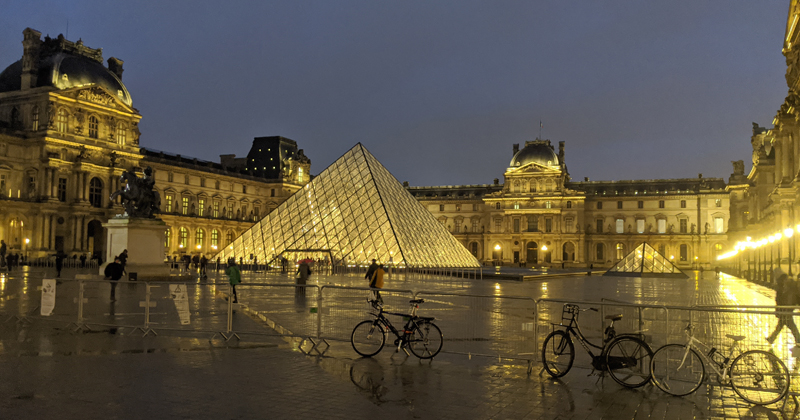A group of Winter 2020 Paris biological sciences students pose in the Hall of Mirrors at the Château de Versailles, during the group’s visit. Versailles was in the process of being transformed from a “simple” hunting lodge to the home of the king of France at the time of the scientific events explored in the program.
What’s the difference between teaching material in Delaware vs. abroad?
When this course is offered as part of a study abroad program, the goal is to immerse ourselves in the place where that semester’s topic was primarily taking place. This allows us to better understand the context of that scientific breakthrough and, in many cases, walk in the actual footsteps of the primary figures. For example, in Paris, when the course topic is blood transfusions, our classroom is less than 100 yards from where the first transfusions took place! And, understanding those contexts and how they shaped the discovery process is our main goal.
Fill in the blank. Students who choose this study abroad experience tend to be…
STEM majors who are interested in careers in health professions — though they aren’t the only ones!
What’s your advice to anyone traveling to Paris for the first time?
There is so much to see and so many “bucket list” places to visit that you can’t see them all in one trip unless you race from place to place and don’t spend any actual time to soak it in. So, pick a shorter list of things and also try to get off the beaten path a bit to visit smaller places. Those can be the best and most interesting. Also, do a food tour — and do it early in your trip.
Paris is exciting and fashionable, and it can feel like you want to have this fast-paced hectic trip, but Parisians feel very strongly about taking the time for the things that matter. Enjoy your espresso, or your glass of wine. Experience it! There is no rush.
What has Paris taught you?
When we picture Paris, we tend to think of rude people who hate American tourists. That isn’t the case. Parisians just tend to be more reserved, don’t often randomly talk to strangers, and expect a certain set of interactions. When traveling anywhere, it is important to try to learn about how the locals act, what they expect and the cultural norms of how things work.


